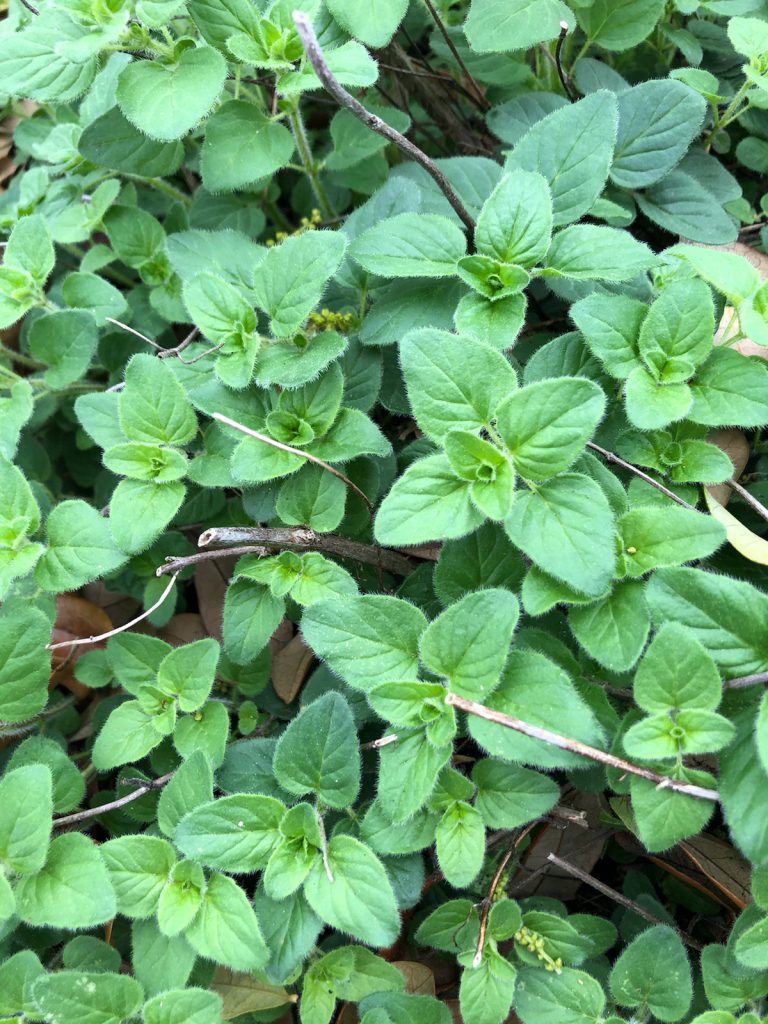As an avid herb gardener, I have often wondered why my oregano is often flavorless when incorporated into meals but still smells strong when handled in the garden. Thankfully our herb demonstration garden at UF/IFAS Extension Washington County Office was a site of a gigantic but flavorless oregano plant, so I was determined to solve the mystery as to why.

Although most herb gardeners expect oregano to be pungent and flavorful, some selections don’t measure up. These plants usually possess the usual pleasant oregano odor but lack the intensity of flavor expected from the herb.
Common oregano, scientific name Origanum vulgare, is an open pollinated species and is grown from seed and sometimes cuttings. As such, it offers some level of genetic variation in the pungency of a given plant. Thus, when shopping for common oregano at a garden center one is likely to get stuck with a less than potent plant.
The good news is that there are quite a few named selections available of Origanum vulgare. The hybrid of Origanum vulgare, known as Italian oregano (Origanum x majoricum), is much more flavorful, as are some of the other cultivated varieties such as Greek oregano (Origanum vulgare var. hirtum). Although all of these may also be easily reproduced from seed, propagation from division or cuttings will ensure that the plant you have is a clone of the desired selection instead of a seedling with variable genetic traits.
In summation, the best strategy to employ when selecting flavorful oregano for the herb garden is to look for named varieties of oregano or subspecies such as Italian oregano. Also, it never hurts to sample the herb you are about to purchase to determine its potency!
For more information about growing herbs in Florida, please consult this (Herbs and Spices in the Florida Garden) EDIS publication or contact your local extension agent.
- Woodland Pinkroot Adds Vibrant Color to Spring Landscapes - April 27, 2023
- Easy Care Roses for the Gulf South - April 20, 2023
- Herb Gardening: When Oregano is Flavorless - March 9, 2023
